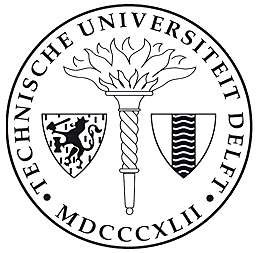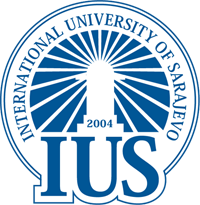Related Research Articles

The Delft University of Technology is the oldest and largest Dutch public technical university, located in Delft, Netherlands. As of 2022 it is ranked by QS World University Rankings among the top 10 engineering and technology universities in the world. In 2023 it was ranked 2nd in the world in civil engineering, 3rd in the world in mechanical and aerospace engineering, and 3rd in the world in architecture.

Postgraduate education, graduate education, or graduate school consists of academic or professional degrees, certificates, diplomas, or other qualifications usually pursued by post-secondary students who have earned an undergraduate (bachelor's) degree.
An academic degree is a qualification awarded to a student upon successful completion of a course of study in higher education, usually at a college or university. These institutions often offer degrees at various levels, usually divided into undergraduate and postgraduate degrees. The most common undergraduate degree is the bachelor's degree, although some educational systems offer lower-level undergraduate degrees such as associate and foundation degrees. Common postgraduate degrees include master's degrees and doctorates.

A doctorate or doctoral degree is a postgraduate academic degree awarded by universities and some other educational institutions, derived from the ancient formalism licentia docendi.

Education in the Netherlands is characterized by division: education is oriented toward the needs and background of the pupil. Education is divided over schools for different age groups, some of which are divided in streams for different educational levels. Schools are furthermore divided in public, special (religious), and general-special (neutral) schools, although there are also a few private schools. The Dutch grading scale runs from 1 to 10 (outstanding).

A thesis, or dissertation, is a document submitted in support of candidature for an academic degree or professional qualification presenting the author's research and findings. In some contexts, the word thesis or a cognate is used for part of a bachelor's or master's course, while dissertation is normally applied to a doctorate. This is the typical arrangement in American English. In other contexts, such as within most institutions of the United Kingdom and Republic of Ireland, the reverse is true. The term graduate thesis is sometimes used to refer to both master's theses and doctoral dissertations.
Habilitation is the highest university degree, or the procedure by which it is achieved, in many European and non-English-speaking countries. The candidate fulfills a university's set criteria of excellence in research, teaching and further education, usually including a dissertation. The degree, sometimes abbreviated Dr. habil. or PD or D.Sc., is often a qualification for full professorship in those countries. The degree conferral is usually accompanied by a public oral defence event with one or more opponents. Habilitation is usually awarded 5–15 years after a PhD degree or its equivalent. Although in some countries Doctor of Sciences degree correlates with a position of Docent, it is closer in practice to the position of a Full Professor in the USA.
A Fachhochschule, abbreviated FH, is a university of applied sciences (UAS), in other words a German tertiary education institution that provides professional education in many applied sciences and applied arts, such as engineering, technology, business, architecture, design, and industrial design.
Maastricht University is a public research university in Maastricht, Netherlands. Founded in 1976, it is the second youngest of the thirteen Dutch universities.
The title of docent is conferred by some European universities to denote a specific academic appointment within a set structure of academic ranks at or below the full professor rank, similar to a British readership, a French maître de conférences (MCF), and equal to or above the title of associate professor.
Master's degrees in Europe are the second cycle of the Bologna process, following on from undergraduate bachelor's degrees and preceding third cycle doctorates. Master's degrees typically take two years to complete, although the number of years varies between countries, and correspond to 60 – 120 ECTS credits. Within the European Higher Education Area, representing almost all countries in Europe, master's degrees are referenced to the Framework of Qualifications for the European Higher Education Area and national qualifications frameworks.

The International Union of Students (IUS) was a worldwide nonpartisan association of university student organizations.

The International University of Sarajevo (IUS) is a private university located in the capital city Sarajevo, Bosnia and Herzegovina. The university was established by the Foundation for the Development of Education in 2004–2005. IUS is open to students from all over the world, and the language of instruction and communication is English. It offers four year education according to Bologna system. IUS has 1650 students from 55 countries and faculty members from 20 countries performing academic and research activities in various disciplines of Science, Engineering, Arts and Social Sciences. The first generation of 32 IUS graduates received their diplomas on June 26, 2009. IUS offers many types of scholarships, especially for students from Bosnia and Herzegovina. IUS has both modern and large campus for the region.

Professor is an academic rank at universities and other post-secondary education and research institutions in most countries. Literally, professor derives from Latin as a "person who professes". Professors are usually experts in their field and teachers of the highest rank.

A Doctor of Philosophy is the most common degree at the highest academic level, awarded following a course of study and research. The degree is abbreviated PhD, from the Latin Philosophiae Doctor, pronounced as three separate letters. The abbreviation DPhil, from the English 'Doctor of Philosophy', is used by a small number of British and Commonwealth universities, including Oxford, formerly York, and Sussex, as the abbreviation for degrees from those institutions. PhDs are awarded for programs across the whole breadth of academic fields. Because it is an earned research degree, those studying for a PhD are required to produce original research that expands the boundaries of knowledge, normally in the form of a dissertation, and defend their work before a panel of other experts in the field. The completion of a PhD is typically required for employment as a university professor, researcher, or scientist in many fields.
This article describes the academic positions and ranks in Sweden.
A doctoral advisor is a member of a university faculty whose role is to guide graduate students who are candidates for a doctorate, helping them select coursework, as well as shaping, refining and directing the students' choice of sub-discipline in which they will be examined or on which they will write a dissertation. Students generally choose advisors based on their areas of interest within their discipline, their desire to work closely with particular graduate faculty, and the willingness and availability of those faculty to work with them.
The following are academic ranks in the Finnish higher education system. There are a specific number of posts, which can be applied to when they are vacated or established.
Academic ranks in Norway are the system of merit-based ranks used by academic employees in academia. Similar to the British rank system, the Norwegian rank system is broadly divided into three pathways, a combined research and teaching career pathway, a research career pathway and a teaching career pathway.
References
- ↑ Lange, C. R.; De Bont, Raf; Filatova, Tatiana; Katsonis, Nathalie (2018), A beginner's guide to Dutch academia, Utrecht University, hdl:1874/367931
- ↑ Backhaus, Jürgen Georg (2015), The University According to Humboldt: History, Policy, and Future Possibilities, SpringerBriefs in Economics, vol. 89, Springer, p. 8, ISBN 9783319138565